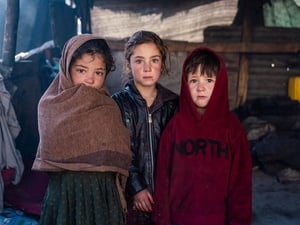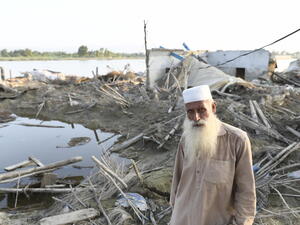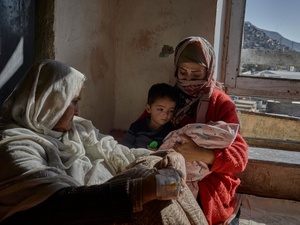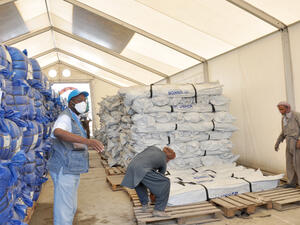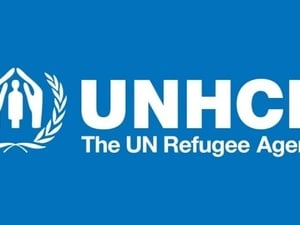Displaced Afghans return from squalid border camps
Displaced Afghans return from squalid border camps

In recent weeks, more than 1,500 Afghan refugees have gone home from the makeshift camp at Chaman, Pakistan.
KANDAHAR, Afghanistan, May 14 (UNHCR) - The impasse in south-western Afghanistan's Kandahar province could be easing as UNHCR starts helping some of the up to 80,000 Afghans stuck on the border with Pakistan to move homewards.
Yesterday, UNHCR started assisting the voluntary repatriation of some 600 internally displaced Afghans in the southern border town of Spin Boldak. Some 150 people followed today, leaving for their home villages near Kandahar. Since September, more than 40,000 internally displaced Afghans have been living in squalid conditions in five camps in and around Spin Boldak, forced to flee their homes due to drought and war.
As with UNHCR's other return programmes, the returnees are advised on conditions back in their home areas, and they receive the same transport allowance that goes to returning refugees. They also get a UNHCR family kit and three months of WFP food aid.
Meanwhile, just opposite Spin Boldak, at the Chaman border site inside Pakistan, some 150 people voluntarily returned to Afghanistan Tuesday. This pushes the number of refugee returns from the makeshift encampment to more than 1,500 in recent weeks. UNHCR plans to step up the voluntary return initiative, focusing on some 40,000 people stuck at Chaman.
The refugee agency will also continue to ask Pakistan to permit refugees who cannot return home to be moved to proper UNHCR-assisted camps in the region.
Among the up to 80,000 Afghans encamped on either side of the border south-east of Kandahar are many Pashtuns who have fled their homes in northern Afghanistan. Many of the Afghans stuck in the border camps cite harassment and ethnic persecution as reasons behind their decision to flee their homes.
Others are impoverished pastoral Kuchi tribesmen who lost everything because of the devastating drought afflicting the region. The drought has forced some 400,000 people in the south-west of the country to leave their homes. UNHCR is working with both the Afghan and the Pakistan authorities to find an appropriate solution for the many Afghans who may not be able to return home.
At a press briefing Tuesday, UNHCR also announced that more than 566,000 refugees have returned from neighbouring countries since March 1, with more than 160,000 displaced Afghans going back to their home villages. Some 140,000 people have returned to Kabul province armed with skills, business experience and money to invest.


